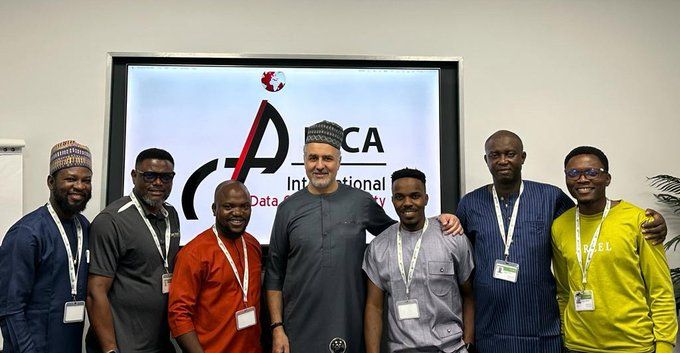
22 Feb 2025
What is Nigeria's Future as an African & Global AI Hub & Digital Economy?
What to do with Nigeria? Africa's most populous country by far, with approximately 233 million people, Nigeria continues to confound the world with the contrast between its potential and performance. The latter has been epitomized over the past 18 months with the crashing, 70-percent decline in the value of its currency, the naira, versus the US dollar. Among more important consequences, the decline makes the country very difficult to analyze.
IDCA Research has consistently placed Nigeria in the lower quartile of nations in its Digital Readiness Index. Its digital infrastructure is underdeveloped, even by the standards of its income tier, which falls into the lowest category, known as Least-Developed Countries (LDCs). Nigeria inhabits this neighborhood with typically much smaller or besieged places, including Burundi, Togo, Uganda, Cambodia and Laos, Nepal, and Yemen.
But even within this group, Nigeria's recent currency devaluation places its annual per-person income at $877 according to the International Money Fund, one of three major, credible resources (along with the World Bank and the United Nations). This catastrophic decline vastly increases the country's dollar-driven “unofficial” economy; makes life tediously difficult for people in a renownedly dynamic, entrepreneurial society; and raises havoc with attempts at a rational analysis of its current economic conditions and prospects.
The IDCA Digital Readiness Index is one such rational analysis, with a twist – the Index gives strong consideration to how much digital infrastructure has been developed in any particular nation, given the economic resources available to it.
Much of Nigeria's recent progress was achieved before the currency crash; after the crash, its digital infrastructure, modest as it is, appears to have been achieved with economic resources that are only 30 percent of what was actually available. Thus, the country's score in the Index's Economy category has improved by almost 40 percent. (The Index integrates data from hundreds of sources into the four broad categories of Economy, Environment, Social, and Governance.)
On the other end of the teeter-totter, the sharply declining value of Nigeria's economy produces data that shows it produces emissions at less than half its previous economic efficiency. This costs the country several points in its Environment rating (which also strongly accounts for the country's unchanged renewable-energy grid).
The end result is a 2-point increase for Nigeria in this Index overall. It may thus seem counter-intuitive that a country can see a 70-percent currency crash yet improve its overall prospects. Yet perhaps this data-driven insight rings true. The country should be hypothetically more attractive to investors in some ways, as the costs of doing business there should be much less, unless hyperinflation takes hold. Its digital infrastructure (as well as physical infrastructure) is indeed relatively stronger than one would expect for a nation with its current income level.
But this decline hasn't occurred in a vacuum. Nigeria remains overly dependent on oil, the disparities reflected in its low Social score remain unchanged, and its Governance scores have not budged yet after less than two years of the administration of President Bola Ahmed Tinubu.
Perhaps Nigeria – an African giant that is often the focus of the continent's finest hopes – is no more confounding today than it has been for the past several decades. But data aside, this currency trouble must be considered as the top troubling issue for individuals and organizations planning their strategy for the nation.
Follow us on social media:


.d57b427b.png&w=3840&q=75)

















